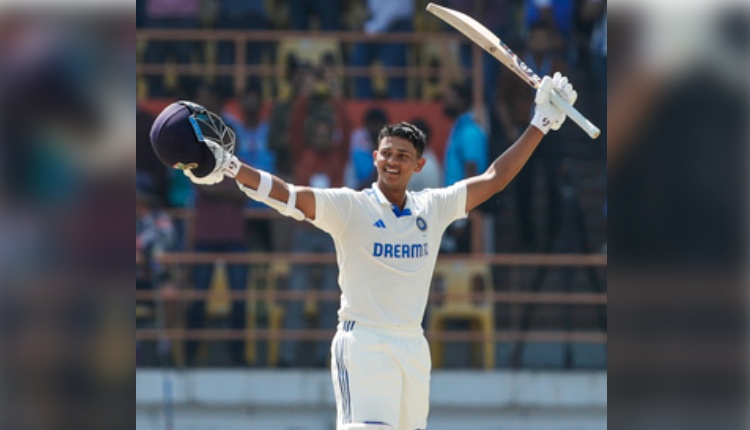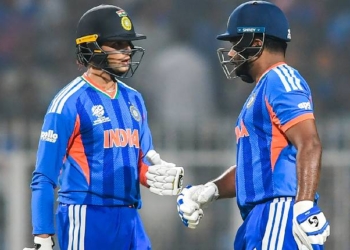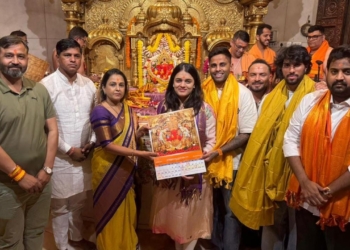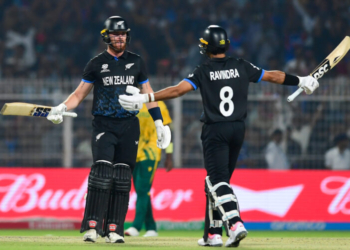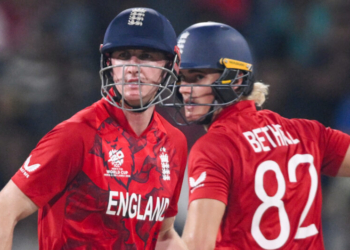Mumbai: Since making a century in his Test debut against the West Indies last year, Yashasvi Jaiswal has quickly established himself in the Indian team as a reliable run-getter, especially after amassing 712 runs in the 4-1 series win over England at home.
Such has been his impact that even Australian off-spinner Nathan Lyon admitted that the young left-handed opener will pose a huge threat to the hosts’ bowling line-up in this year’s Border-Gavaskar Trophy. Matthew Hayden, the former Australia left-handed opener, said it will be very exciting to see how Jaiswal fares in conditions Down Under.
“Isn’t it great that this series is shaping up to be a heavyweight bout? Someone like the GOAT going after what is, in my opinion, one of the key assets for Indian cricket. Yes, he’s certainly proving to be that. One of the things that I’m really curious to understand, even on a night like tonight, the night of nights of celebrating cricket across the world, is how do young players actually perceive Test cricket? Is this current group of Test cricketers driven to excellence by the competitive line-up and nature of Indian cricket right now?”
“It doesn’t matter which format of the game you look at. You go, gosh, there could be a second or even a third side here that could do this country very proud. That’s a phenomenal access to talent but also phenomenal pathways because it’s driven by competition. It’s very similar to the era that I felt really privileged to be playing in.”
“There’s four or five guys that could have been opening the batting with me or I’m sitting there in the wings as I was for seven years waiting for my opportunity. So that’s the strength currently of Indian cricket, in my opinion, is certainly around how much competition there is. But young Jaiswal, it’s an exciting prospect to see how he’ll play in Australia,” said Hayden to reporters on the sidelines of CEAT Cricket Rating Awards in Mumbai.
This year’s Border-Gavaskar Trophy will also be the first time Jaiswal would get to play in Australian conditions and Hayden, who amassed 8,625 runs in 103 Tests, is eager to see how the youngster fares in bigger grounds against a fast-bowling line-up of captain Pat Cummins, Josh Hazlewood and Mitchell Starc.
“I think he’s a package. Yes, his stroke play is superb. His ability in particular to hit on the up through the covers is phenomenal. That’ll also have its vulnerabilities. I’m looking forward to seeing how he adjusts on bouncy tracks. We did notice a few times in the IPL that he’s a very hard hitter of the ball, pull shots in particular.
“But that’ll be challenged by three world-class speedsters, assuming they’re all fit, and on much bigger grounds as well. Grounds are such that it has to almost be the perfect contact for that ball to sail over the six. Otherwise, you can get caught easily three-quarters of the way in the fence. So they’re little adjustments that world-class players like Jaiswal will make, for sure.”
The much-anticipated five-game series will be played in Perth, Adelaide (day-night Test match), Brisbane, Melbourne and Sydney, and Hayden explained how Australia don’t have much of home advantage, citing the nature of pitches being different as compared to his playing days.
“Look, it’s a pretty well-worn path, our drop-in wickets, meaning that the groundsmen tend to start them with quite a lot of grass cover between 11 and 13 mil usually on day one. Which means that they can be quite spicy with the new ball. They leave them that way because what happens inevitably is they get flatter and flatter and flatter and they don’t break up, crack and turn. There’s not a lot in it for the bowlers post the first few days.”
“So we’re talking now, when you look at the string of the venues, you’ve got Perth, Adelaide, Brisbane, and the traditions of Sydney and Melbourne. Three out of five are drop-in wickets. One is a day-night Test Match, where you get those overhead conditions under that twilight zone, they can be really difficult.”
“I would go as far as to say that the home advantage in Australia has been taken away quite a lot. Simply on the basis that if you get the wrong side of a certain session, be that you’re 4 for 130 at twilight, you can be 8 for 150. So there’s no chance to actually really naturally dominate a game. It’s quite even the whole time. So it’s a very different type of cricket, certainly to our era of cricket, because you don’t have those traditional surfaces.”
(IANS)




